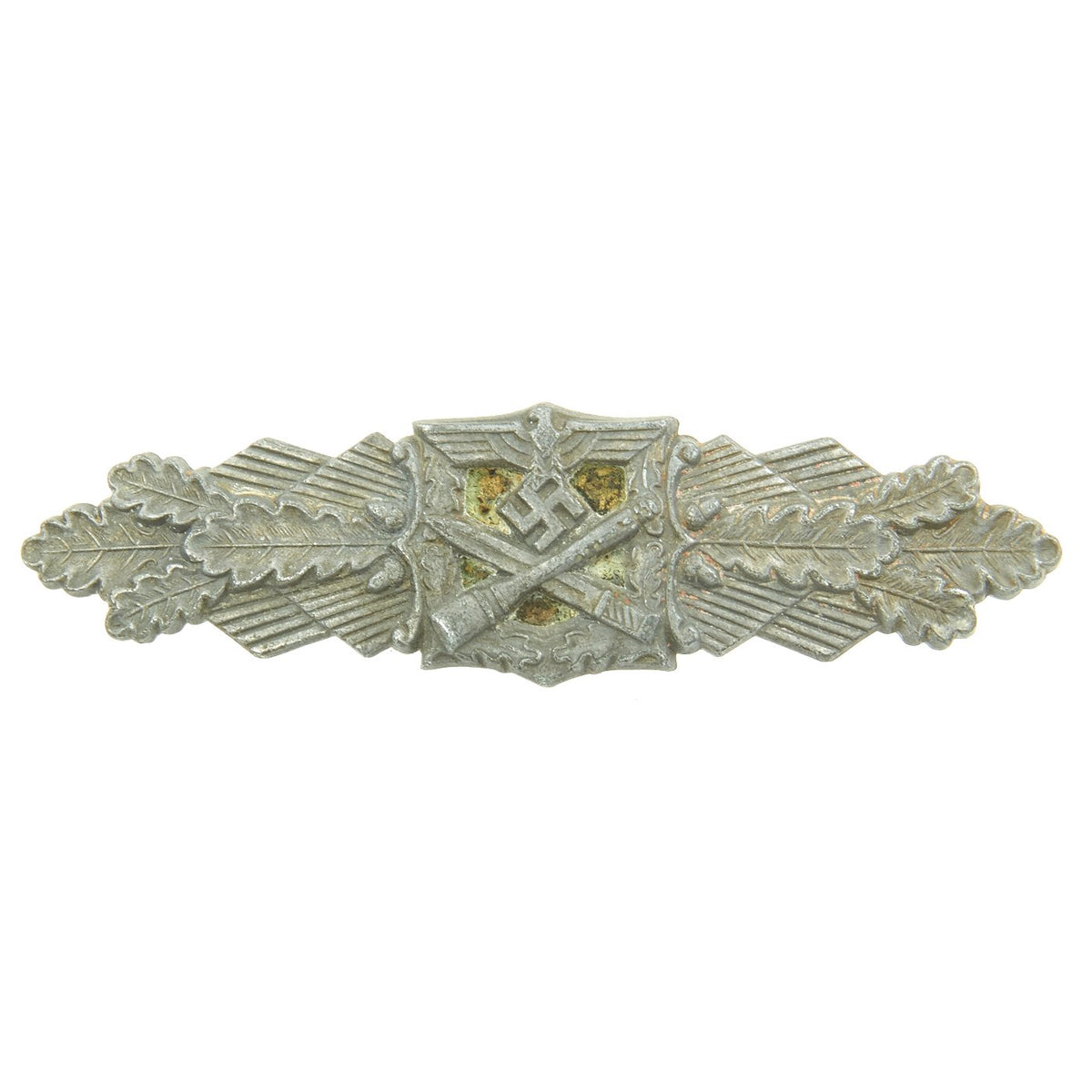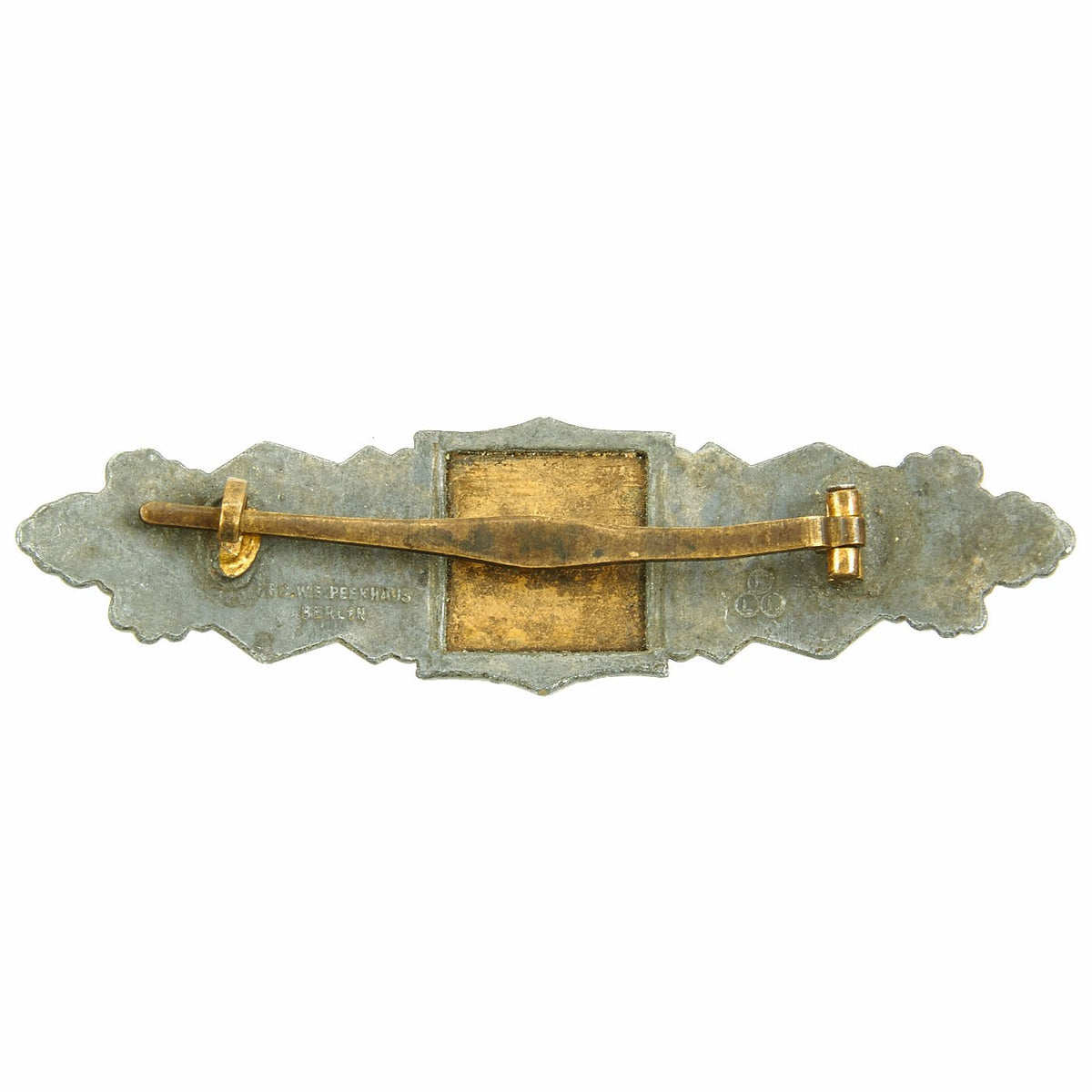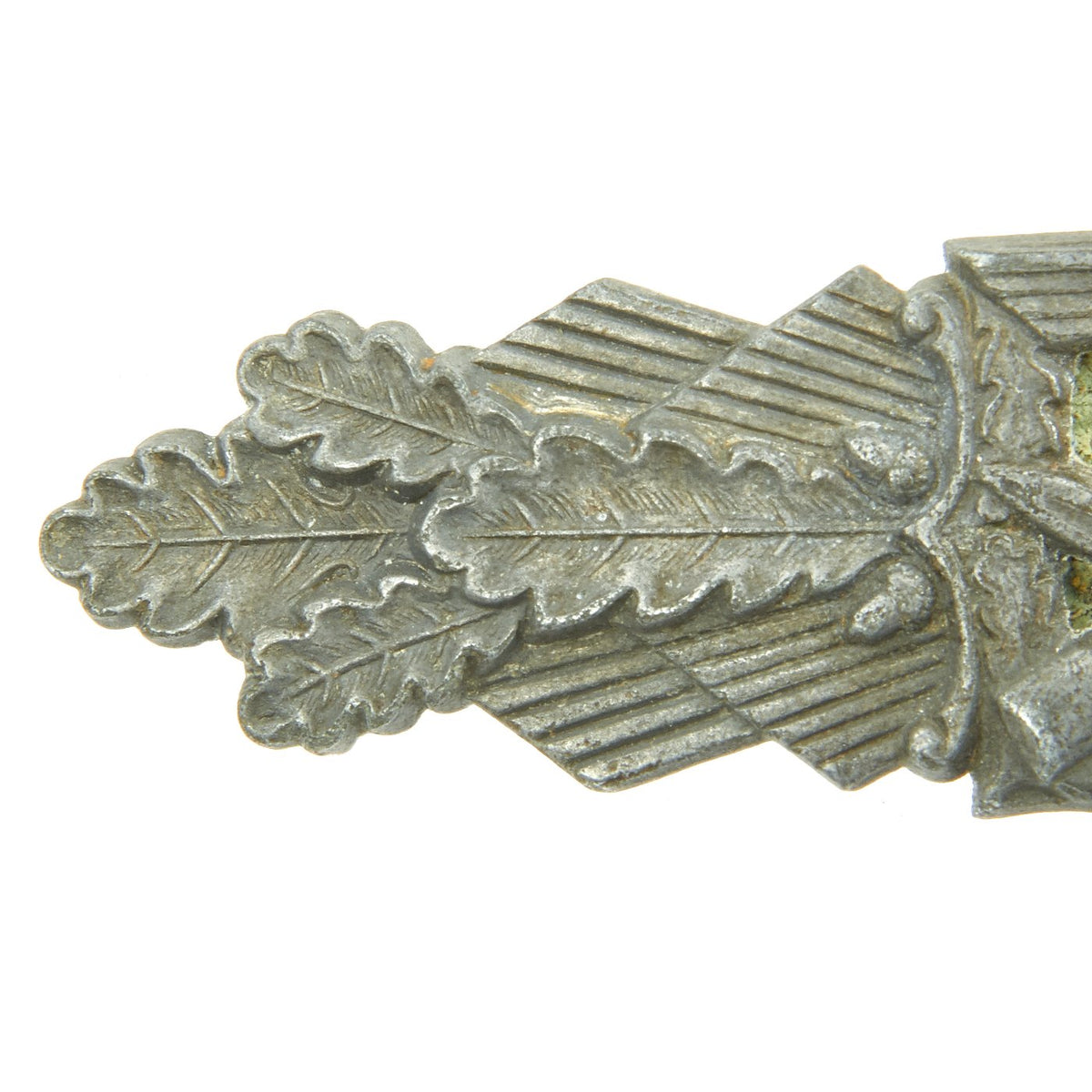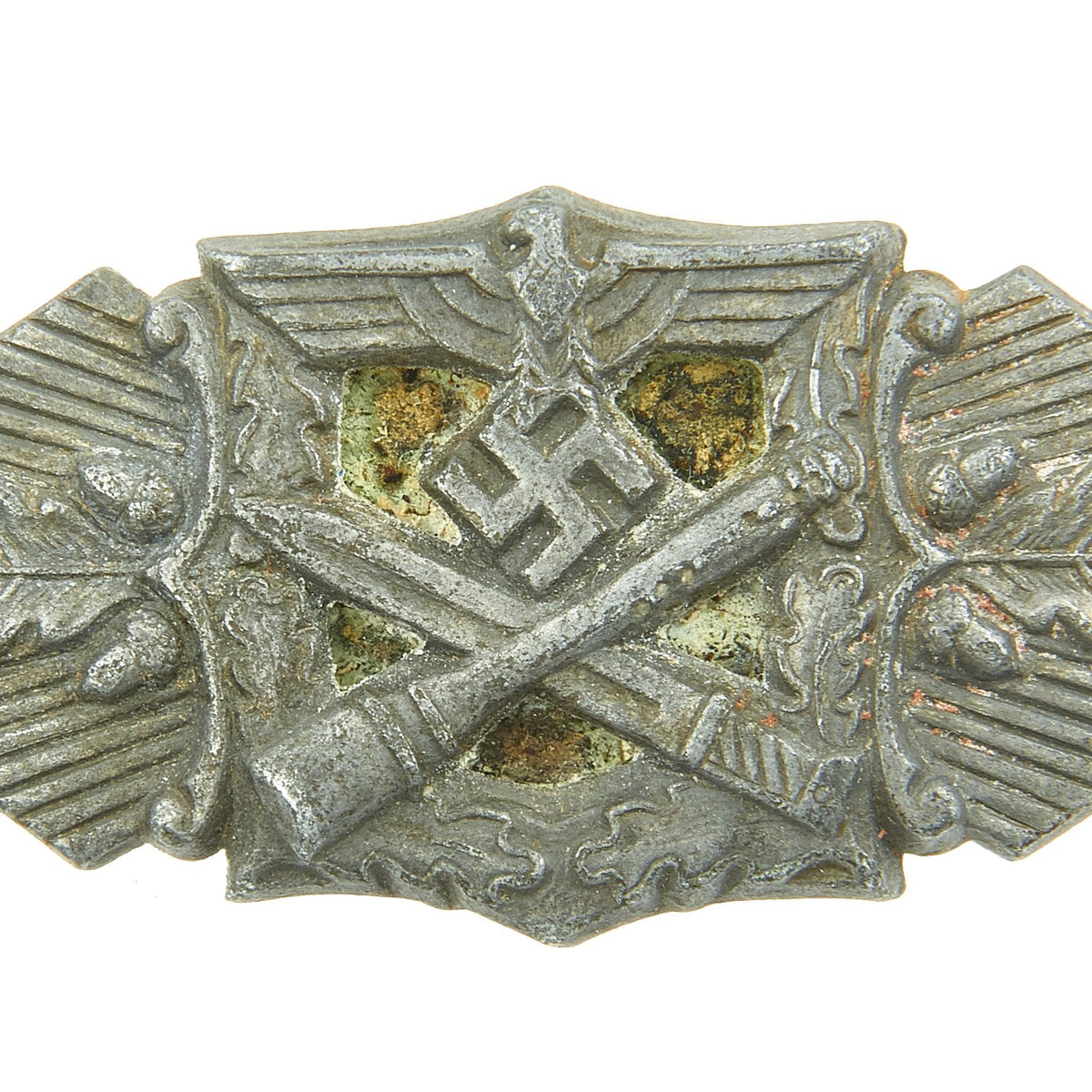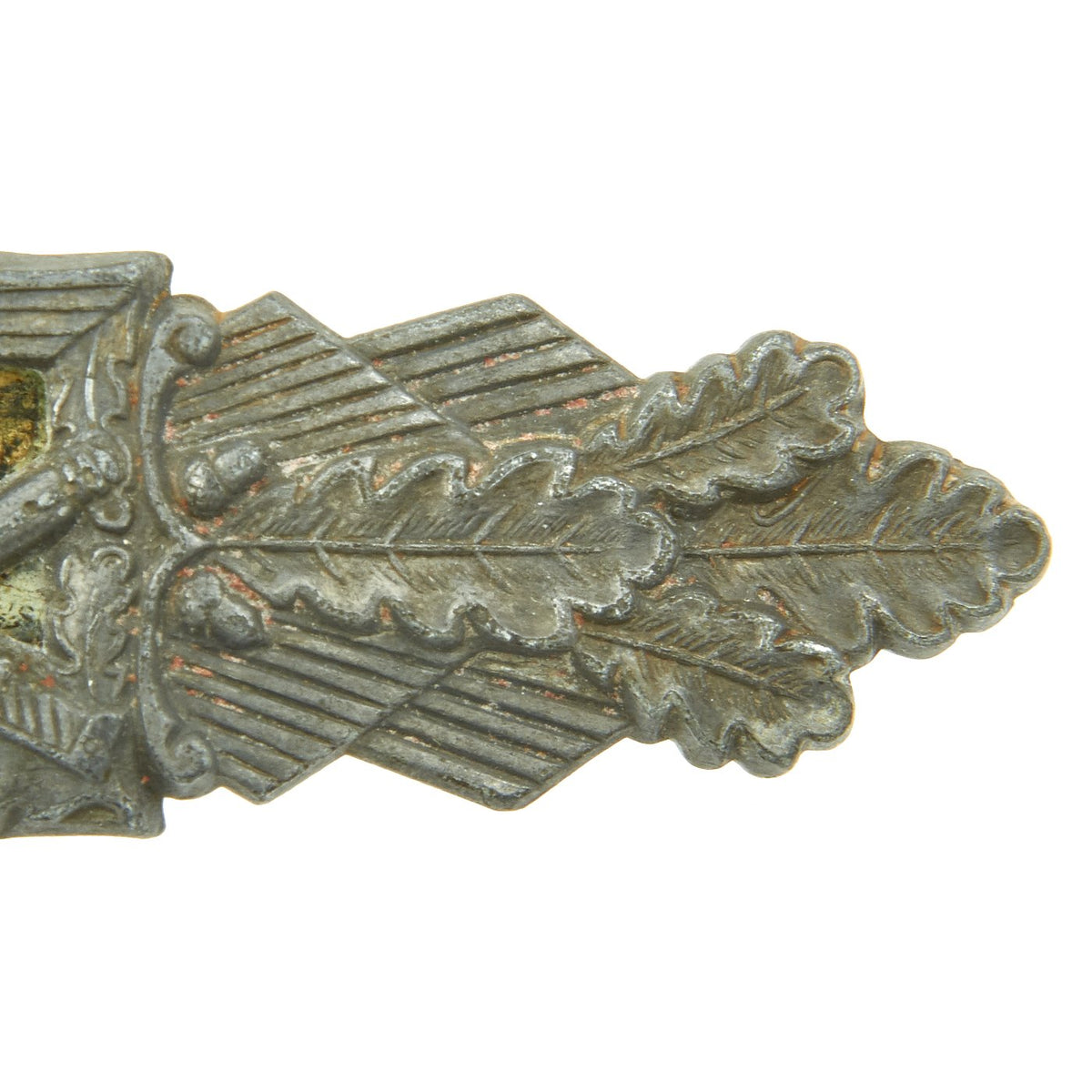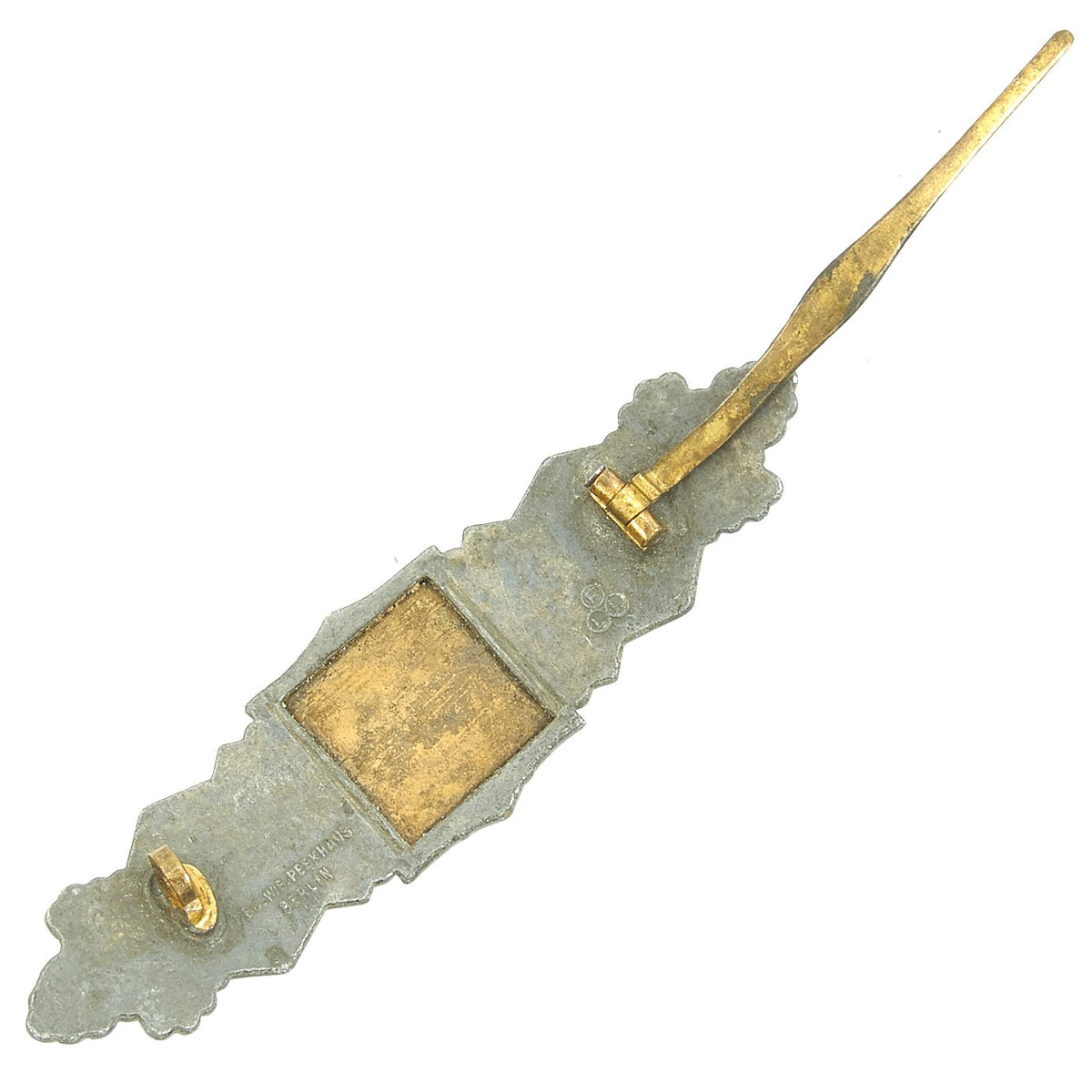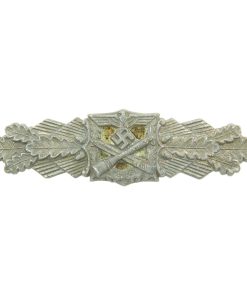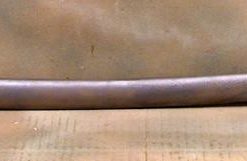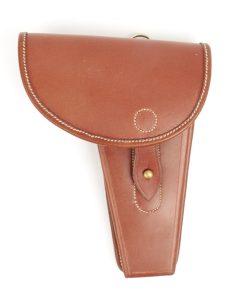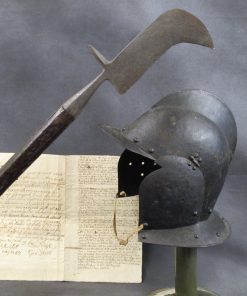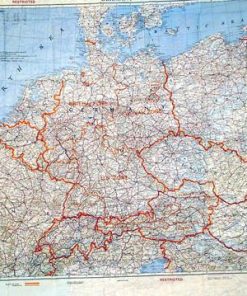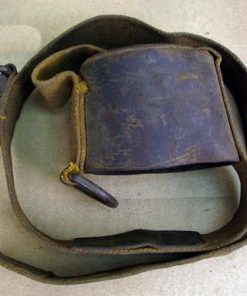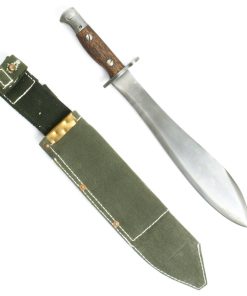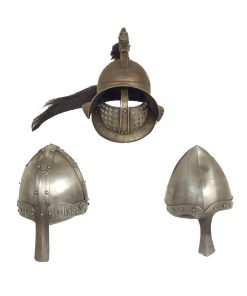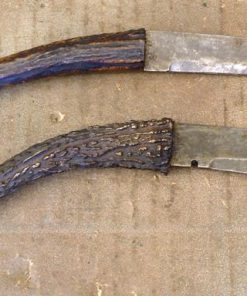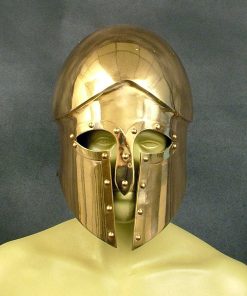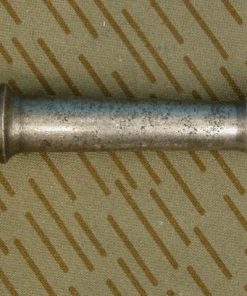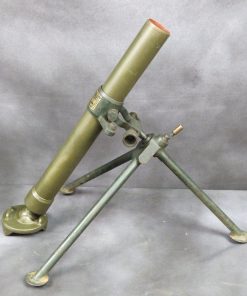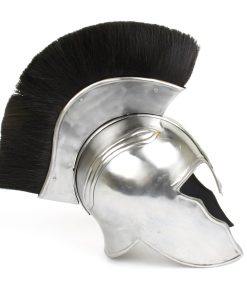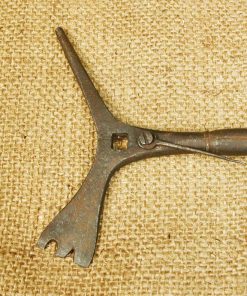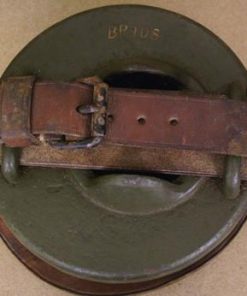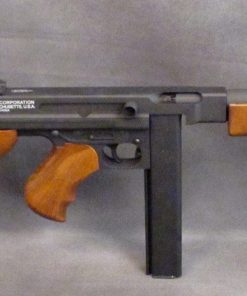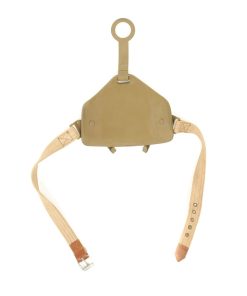Original German WWII Close Combat Clasp Bronze Grade by Friedrich Linden of Lüdenscheid Original Items
$ 395,00 $ 118,50
Original Item: Only One Available. Known in German as a Nahrkampfspange in Bronze, this fine award is constructed of bronzed slightly vaulted zinc. The obverse with a national eagle and a bayonet and hand grenade in the centerpiece, with sun rays emanating from the center of the left and right sides, and with four oak leaves and two acorns on each side. The reverse side is plain, with a square non-magnetic backing plate behind the insignia, and a horizontal pin back with a barrel hinge and a flat wire catch.
The back is marked by retailer F.E.C. W.E. PEEKHAUS / BERLIN on the left and with F L L in circles, the logo of Friedrich Linden of Lüdenscheid. Measures 3.85 inches (97.85 mm) W x 1.04 inches (26.50 mm) H. Offered in overall nice condition with fully functional claps and signs of age. As with most, the bronzing has worn off on most of the front, but can still be seen on the back. Ready to display!
The Close Combat Clasp (German: Nahkampfspange) is a German military award instituted on 25 November 1942 for achievement in hand-to-hand fighting in close quarters. The Close Combat Clasp was worn above the upper left uniform pocket. The clasp was die-cast and made of either tombac or later zinc, with a slightly curved centerpiece consisting of the national emblem surmounting a crossed bayonet and hand grenade.
The award was bestowed in three classes: Bronze for 15 close combat battles; Silver for 25 battles; and Gold for 50+ battles. The Gold Close Combat Clasp was often regarded in higher esteem than the Knight’s Cross of the Iron Cross by the German infantry. Of the roughly 18–20 million soldiers of the German Wehrmacht and Waffen-SS, 36,400 received the Bronze Class, 9,500 the Silver Class and 631 the Gold Class.
Fast Shipping with Professional Packaging
Thanks to our longstanding association with UPS FedEx DHL, and other major international carriers, we are able to provide a range of shipping options. Our warehouse staff is expertly trained and will wrap your products according to our exact and precise specifications. Prior to shipping, your goods will be thoroughly examined and securely secured. We ship to thousands clients each day across multiple countries. This shows how we're dedicated to be the largest retailer on the internet. Warehouses and distribution centres can be located throughout Europe as well as the USA.
Note: Orders with more than one item will be assigned a processing date depending on the item.
Before shipping before shipping, we'll conduct a thorough inspection of the items you have ordered. Today, the majority of orders will be delivered within 48 hours. The delivery time will be between 3-7 days.
Returns
The stock is dynamic and we cannot completely manage it because multiple stakeholders are involved, including our factory and warehouse. So the actual stock may alter at any time. It's possible that you may not receive your order once the order has been made.
Our policy is valid for a period of 30 days. If you don't receive the product within 30 days, we are not able to issue a refund or an exchange.
You can only return an item if it is unused and in the same state as the day you received it. You must have the item in its original packaging.
Related products
Uncategorized
Uncategorized
Armored Burgonet Helmet & Polearm from Scottish Castle Leith Hall Circa 1700 Original Items
Uncategorized
Uncategorized
Angolan Rebel 1970s era 60mm Inert Display Mortar from Angolan Civil War Original Items
Uncategorized
Uncategorized
Uncategorized
Uncategorized
Uncategorized
Uncategorized
Uncategorized
Uncategorized
Uncategorized
Uncategorized
Uncategorized
